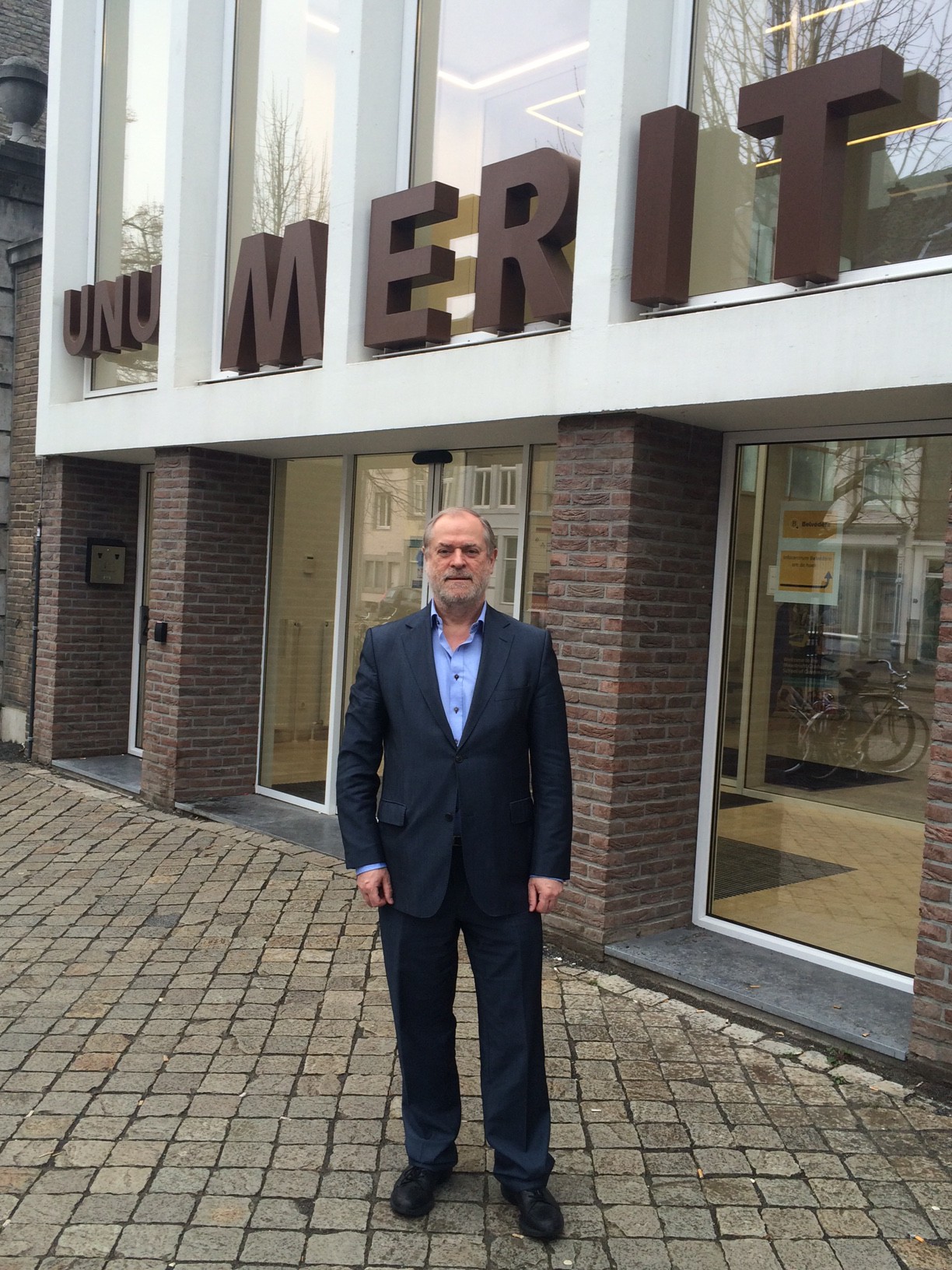In a public event at Maastricht University, Simone Sasso (UNU-MERIT), will defend his thesis “Talent on the move. Essays on human capital, graduate mobility and economic development”.
Klaus F. Zimmermann (UNU-MERIT and Bonn University Emeritus), who is also the President of the Global Labor Organization (GLO) and Co-Director of POP at UNU-MERIT, will participate at the event in the afternoon. He is a member of the thesis committee of Simone Sasso.
On Wednesday May 30, Zimmermann will also discuss issues with collaborators at UNU-MERIT.
|
ANNOUNCEMENT OF UNU-MERIT EVENT United Nations University – Maastricht Economic and social Research Institute on Innovation and Technology Maastricht Graduate School of Governance
|
| Title: | Talent on the move. Essays on human capital, graduate mobility and economic development |
| Speaker: | Simone Sasso |
| Institute: | UNU-MERIT |
| Date: | May 29, 2018 |
| Time: | 16:00 – 17:30 |
| Venue: | Aula, Minderbroedersberg 4-6, Maastricht |
| Type: | PhD defence |
Abstract
Due to the knowledge and skills that graduates bring with them, their interregional and international mobility can have substantial effects on their economies of origin and destination. This thesis aims to broaden the understanding of how human capital and graduates’ geographical mobility affects their individual careers, as well as, the firms, scientific systems, and countries in which they work. It combines microeconomic and macroeconomic perspectives and applies a broad array of econometric and social network analysis techniques to a variety of large datasets. First, the thesis investigates the relationship between human capital, R&D, and productivity across different economies and industries. Second, it analyses whether interregional graduate mobility as well as educational and cultural diversity among employees in a firm have a positive effect on productivity. Subsequently, it studies how the interregional mobility of graduates affects their chan ces of having a job in line with their qualifications. Finally, it investigates the role of geographical mobility for scientific upgrading by analysing the impact of the international mobility of PhD holders on local and global scientific collaborations and on the individual careers of the researchers. The results indicate that the potential benefits that graduate mobility can bring are substantial (even if oftentimes not wholly realized) and confirm the importance of maintaining a multi-level perspective in future research.
Keywords
Human capital; productivity; skilled migration; interregional mobility; international mobility; education-job match; research collaboration.
Klaus F. Zimmermann

Ends;


